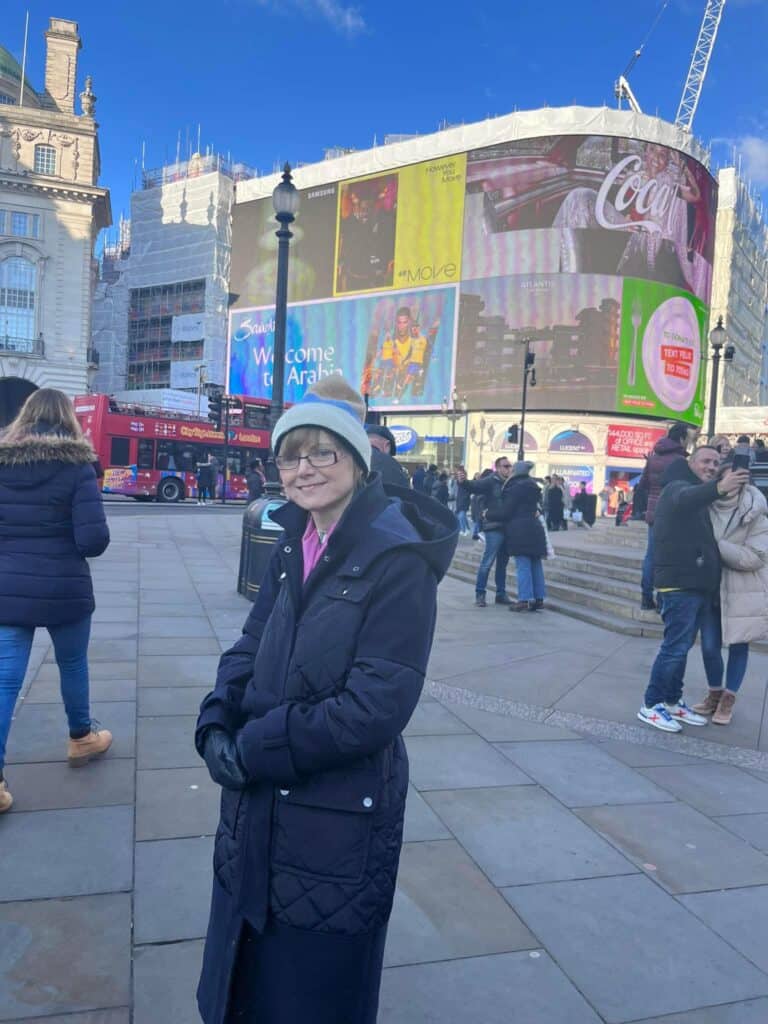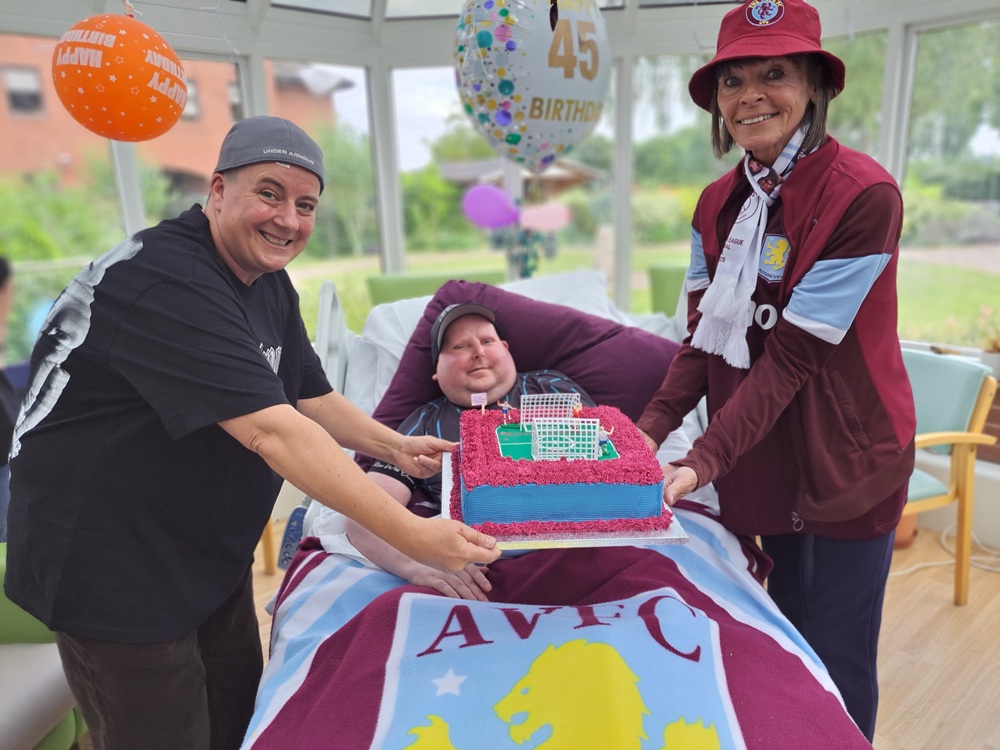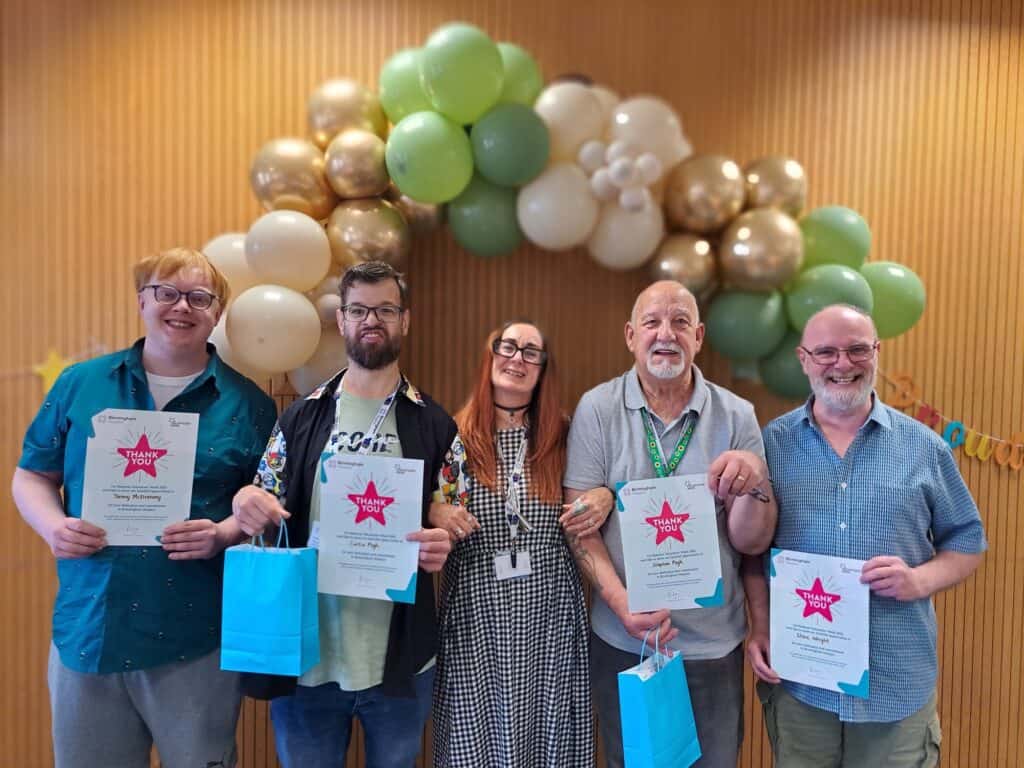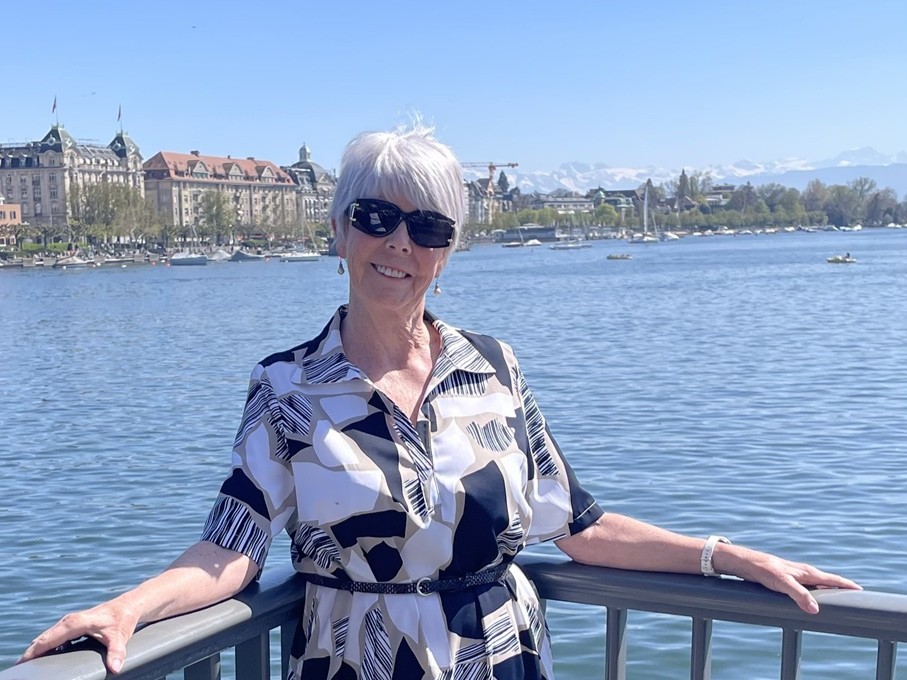For some Birmingham Hospice patients, our care can last for several years, and this was the case for Kirsty Ward who was supported at home by our Community Team and later in our Inpatient Unit, where she was able to spend her final weeks surrounded by family and friends.

When Kirsty was diagnosed with breast cancer for the second time in 2019, at the age of 41, further scans revealed it had spread to her liver, lungs and bones, meaning that it could not be treated, and she was referred to Birmingham Hospice for support.
She received visits at home from our Community Team, who assisted her with her pain relief and medication, as well as providing someone to listen and offer advice where needed. When her condition deteriorated, she was admitted to our Inpatient Unit in March 2024, and she died there three weeks later.
Her husband Ricki said: “Kirsty was an administrator at the University of Birmingham; a job she really loved and a well-valued member of the team. One of her main interests was photography, which she was really good at. She was also mad about animals and we had five cats at home!
“When hospice care was first mentioned, we were apprehensive as we thought that meant she was going to die very soon, but in fact she was supported at home for almost five years. Kirsty didn’t need to come into the hospice until the end of her life but she received counselling, moral support, pain relief and help to organise her medication, which was really valuable for us as it meant we didn’t have to sort it out ourselves.
“When Kirsty became seriously ill, she wasn’t herself and I remember how scared she was in hospital. She wanted to go back home but we were advised that would be very difficult for me.”
Ricki said that neither of them were sure what the inpatient unit would be like, but that turned out to be the best decision they could have made, with Kirsty benefiting from the care and support of our entire team, as well as the homely atmosphere and the opportunity to spend as much time as possible with those close to her.
“We didn’t know what to expect but once she got to the hospice, she changed completely, and she felt supported and happy,” Ricki explained. “From the volunteers on reception and in the cafe, to nurses and healthcare assistants, the cleaners and the chef Steve – everyone was absolutely amazing and we couldn’t have asked for anything more. In the first couple of days, she formed a friendship with Anthony, one of the Healthcare Assistants, who she had a real bond with because they were the same age.
“It was just simple things like flowers in the room, watching the birds outside and having nice food to eat, that made her feel like she wasn’t in a hospital. She was made comfortable, looked after by every single member of staff, and no-one ever made her feel like she was a burden.
“For the first six days she had to stay in her room because she had a contagious illness, and when she was finally able to go out and I pushed her round in a wheelchair, she just felt relaxed and it was as though she’d made her peace with what was happening. She knew she would be safe and didn’t have to worry any more.”
The opportunity for family and friends to visit in a comfortable environment with no pressure on time helped both Kirsty and those who were close to her. And Ricki said that, despite what was coming, it was a happy environment where everyone was able to laugh together and make the most of the time they had.

“Kirsty had a lot of people who wanted to be with her when the end was coming, and Jess the ward nurse offered to put us in the Family Centre, which was a lifeline for us before we could all sit together as family and friends in this lovely place looking over the garden. Everyone felt supported, nothing was too much trouble and they even offered things like spare beds without us even needing to ask so people could stay over – we were so well looked after.
“It sounds strange but all we did was laugh. The hospice isn’t a place of death, it’s a place of happiness, where you can laugh and be with your loved ones and be supported. Everything else, the day to day grind of the illness, was put to one side and we were allowed to be friends and family, and didn’t have to be carers; that was the biggest help of all.
“I remember something Julie, one of the nurses, said to me which really hit home – ‘you can be Kirsty’s husband again and not her carer’ and that’s what it allowed me to be, so I could just sit with her, and not worry about when to have medication because that had been my job for nearly five years. I didn’t resent doing that at all, but I felt being at the hospice gave us that little bit of time before she died to be close to each other.”
And the support did not end when Kirsty died, with bereavement counselling also offered to her family and friends.
Ricki added: “The counselling has been difficult at times because of what we’re talking about, but I can feel a positive effect and it’s something I want to carry on with because it’s going to be beneficial. For that to be offered was something I’d never have expected beforehand. The work the hospice does supporting family and friends is absolutely vital and it’s unthinkable that it could be stopped if the funding wasn’t there.
“I’d always say to anyone who thinks hospices are just a place of death, it’s not just about the person who’s going to die, it’s about everyone, and the support that’s been given – whether that’s counselling, or just something as simple as a hand on the shoulder or a smile, or taking a minute to ask how you are – has made such a difference.”



